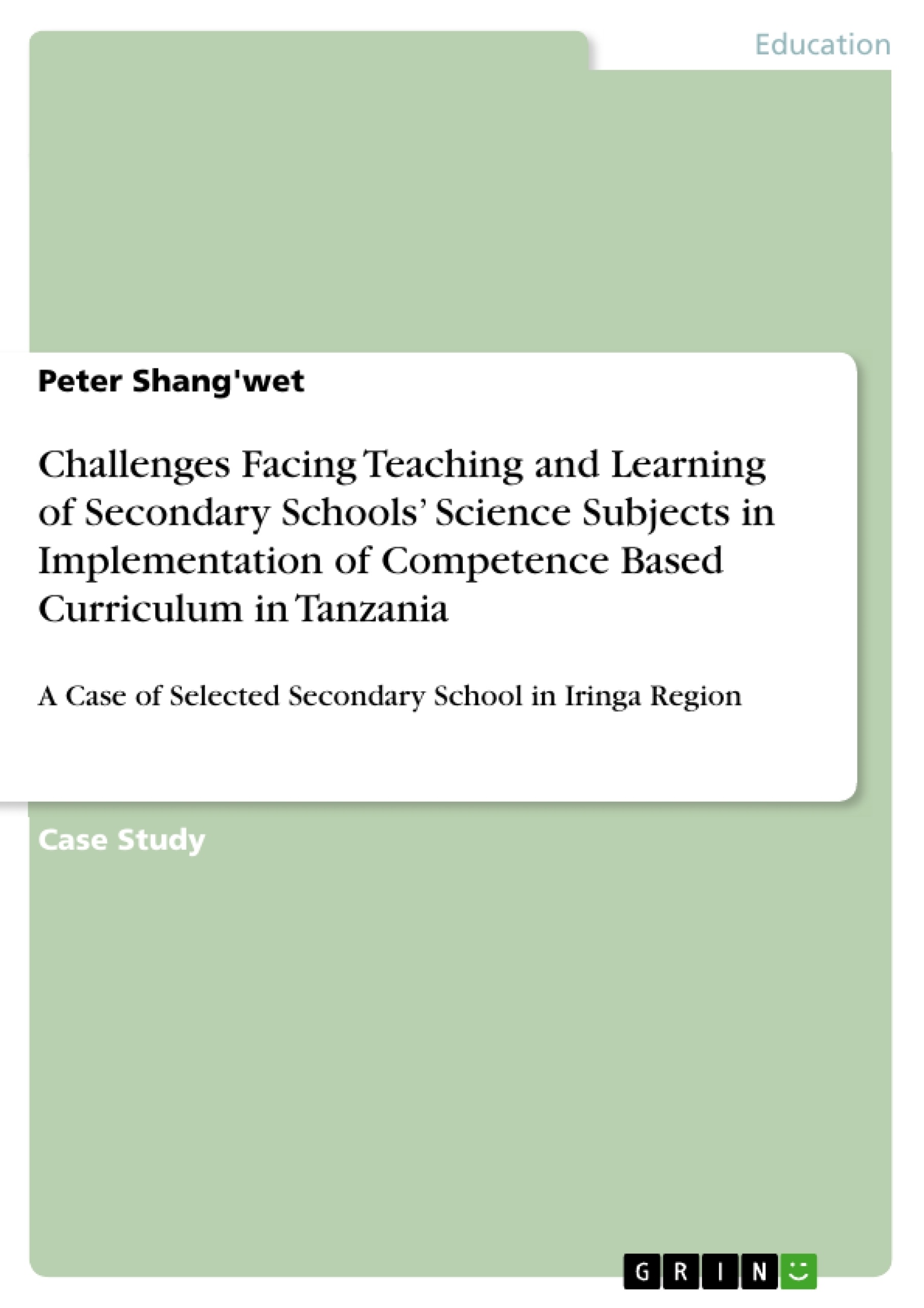The aim of this study is to assess challenges facing implementation of competence-based curriculum in Science subjects in secondary schools. The study followed a qualitative approach, and adopted a case study design. A sample of three science teachers and four science learners participated in the study. Data were collected through individual interviews with teachers, focus group interviews with learners and lesson observation.
Teaching and learning of science is faced by many challenges in most developing countries. There is a shortage of qualified science teachers in some African countries and in some instances teachers Data were then analyzed. The study found that there were numerous challenges related to lack of required infrastructure and resources for science teaching. There were also challenges related to learners’ background, language of instruction and lack of parental support.
Inhaltsverzeichnis (Table of Contents)
- 1.0 INTRODUCTION
- 1.1 Objective of the study
- 1.2 Research Questions
- 1.3 Significance of the Study
- 1.4 Delimitation of the study
- 1.5 Limitation of the study
- 2.0 LITERATURE REVIEW
- 2.1 Research gap.
- 3.0 RESEARCH METHODOLOGY
- 3.1 Research Approach
- 3.2 Research design
- 3.3 Sample Size
- 3.4 Sampling Procedure/technique
- 3.5 Research Instruments
- 4.0 FINDINGS AND DISCUSSION
- 4.1 Findings
- 4.1.1 Description of the participants who participated in the study
- 4.1.2 Challenges facing teachers and students on teaching and learning science subjects
- 4.2 Discussion
- 4.3 Measures to address challenges
- 4.4 Suggestions on Overcoming Challenges
- 4.4.1 Textbooks and Reference Books Should Reflect CBC
- 4.4.2 Selection of Qualified Secondary School Students
- 4.4.3 Construction of quality laboratories and enough apparatus.
Zielsetzung und Themenschwerpunkte (Objectives and Key Themes)
The main aim of this study is to assess the challenges faced in implementing a competence-based curriculum within secondary science subjects. The study utilizes a qualitative approach and focuses on a specific case study of a secondary school in Iringa Region.
- Challenges of implementing competence-based science education in secondary schools.
- Impact of resource availability on science education.
- The role of student background and language of instruction in science learning.
- The importance of parental support in science education.
- Teacher preparedness and qualifications in teaching science subjects.
Zusammenfassung der Kapitel (Chapter Summaries)
The study's introduction sets out the objective to assess challenges faced by teachers and learners in teaching and learning science subjects within secondary schools. The research questions focus on identifying challenges faced by both teachers and students, exploring the perceptions on addressing these challenges, and determining how these challenges can be solved. The study highlights its significance in addressing mass failure in science subjects in Tanzania and providing insights for future research in education. The delimitation and limitation of the study are also discussed.
Chapter two delves into the literature review, highlighting existing research on the challenges facing science teachers and learners. The chapter examines the issue of qualified science teachers and the need for teacher training, discussing the inadequacy of current science curricula and its focus on theoretical knowledge over practical investigations. The chapter emphasizes the importance of integrating science, technology, engineering, and math (STEM) subjects to foster interconnectivity and student motivation.
Chapter three outlines the research methodology employed in the study. This chapter details the qualitative case study approach used to gather in-depth insights from teachers and learners. The chapter provides information on the sampling technique used for selecting teachers and learners and the research instruments, which include interviews and focus group discussions.
Chapter four presents the findings and discussion based on data collected from participants. The chapter explores the challenges related to resources, student background, language of instruction, parental support, time allocation, and teacher preparedness. The chapter discusses the implications of these challenges on the teaching and learning of science subjects. Finally, the chapter outlines measures taken by teachers and learners to address these challenges.
Schlüsselwörter (Keywords)
The key themes and concepts explored in this study include competence-based curriculum, science education, challenges in teaching and learning science, teacher preparedness, resource availability, student background, language of instruction, parental support, and scientific literacy. The study focuses on improving science education in secondary schools through the implementation of a competency-based curriculum, addressing the challenges faced by teachers and learners in various contexts.
- Quote paper
- Peter Shang'wet (Author), 2019, Challenges Facing Teaching and Learning of Secondary Schools’ Science Subjects in Implementation of Competence Based Curriculum in Tanzania, Munich, GRIN Verlag, https://www.grin.com/document/1132501



